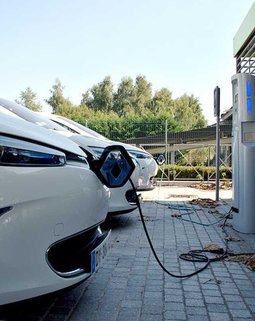Electric cars are becoming increasingly popular in Georgia, reflecting a broader trend toward sustainable transportation solutions. As the state looks to reduce its carbon footprint and promote clean energy, electric vehicles (EVs) are playing a pivotal role in this transformation. This article explores the factors driving the growth of electric cars in Georgia, the challenges that remain, and the future outlook for EV adoption in the state.
A Shift Towards Sustainable Mobility
In recent years, Georgia has seen a significant rise in the adoption of electric cars, driven by growing environmental awareness and government incentives. Residents are increasingly recognizing the environmental benefits of electric vehicles, which produce zero tailpipe emissions and contribute to cleaner air quality. The state’s commitment to reducing greenhouse gas emissions and combating climate change is further fueling this shift towards electric mobility. Additionally, as more electric car models become available, offering improved performance and longer driving ranges, consumers in Georgia are finding it easier to make the switch from traditional gasoline-powered vehicles.
Government Incentives and Support
The state government of Georgia has been proactive in promoting the adoption of electric vehicles through various incentives and policies. These include tax credits for EV purchases, reduced registration fees for electric vehicles, and investments in charging infrastructure. Such measures have made electric cars more accessible and affordable for a wider range of consumers. Moreover, Georgia’s utility companies have introduced programs that offer rebates for installing home charging stations, making it more convenient for residents to charge their vehicles. These initiatives are crucial in driving the growth of electric vehicles in Georgia and helping the state achieve its sustainability goals.
Expansion of Charging Infrastructure
One of the key factors enabling the growth of electric vehicles in Georgia is the expansion of charging infrastructure across the state. Georgia has made significant progress in increasing the number of public charging stations, particularly in urban areas like Atlanta. The state’s major highways are also being equipped with fast-charging stations, making long-distance travel more feasible for electric car owners. This expansion of charging infrastructure is essential for alleviating range anxiety, a common concern among potential EV buyers, and for supporting the widespread adoption of electric vehicles.
Overcoming Market Barriers
Despite the positive momentum, several challenges remain in Georgia’s push toward electric vehicle adoption. One of the primary barriers is the higher upfront cost of electric cars compared to traditional vehicles. While prices are gradually decreasing, the initial investment can still be a deterrent for some consumers. Additionally, the availability of charging infrastructure in rural areas lags behind that in urban centers, posing a challenge for residents outside major cities. Addressing these challenges will require continued investment in infrastructure, as well as efforts to raise public awareness about the long-term cost savings and environmental benefits of electric vehicles.
Job Creation and Economic Growth
The rise of electric vehicles in Georgia is not only benefiting the environment but also contributing to the state’s economy. The growth of the EV market is creating new job opportunities in various sectors, including manufacturing, installation of charging stations, and maintenance services. Georgia is also attracting investments from companies involved in the production of electric vehicle components, further boosting the state’s economic growth. As the demand for electric vehicles continues to rise, the state stands to gain significantly from the expansion of this emerging industry.
Environmental Benefits
The environmental impact of electric vehicles is one of the most compelling reasons for their adoption in Georgia. By reducing reliance on fossil fuels, electric cars help lower greenhouse gas emissions, contributing to cleaner air and a healthier environment. This is particularly important in urban areas like Atlanta, where air quality has been a concern. The widespread adoption of electric vehicles can play a crucial role in improving public health and achieving Georgia’s environmental targets, making the state a leader in sustainable transportation.
Future Outlook for Electric Vehicles in Georgia
The future of electric vehicles in Georgia looks promising, with continued growth expected in the coming years. Advances in battery technology, which are leading to longer driving ranges and faster charging times, will likely accelerate the adoption of electric cars. Additionally, as more automakers enter the EV market with a wider range of models, consumers will have more options to choose from, further driving demand. Georgia’s ongoing investments in infrastructure and supportive government policies will also play a key role in sustaining this growth and positioning the state as a leader in the transition to electric mobility.
A Vision for Sustainable Transportation
As Georgia continues to embrace electric vehicles, the state is setting a strong example for sustainable transportation in the United States. The shift towards electric mobility is not just a trend but a necessary step towards a more sustainable and resilient future. By supporting the growth of the electric vehicle market, Georgia is taking important strides in reducing its environmental impact, promoting economic development, and improving the quality of life for its residents.
Conclusion
The rise of electric cars in Georgia is transforming the state’s transportation landscape, offering a cleaner, more sustainable alternative to traditional vehicles. With strong government support, expanding infrastructure, and growing public interest, the adoption of electric vehicles in Georgia is set to accelerate. As the state continues to lead in the transition to sustainable transportation, the future of electric vehicles in Georgia looks bright, promising significant economic and environmental benefits.





